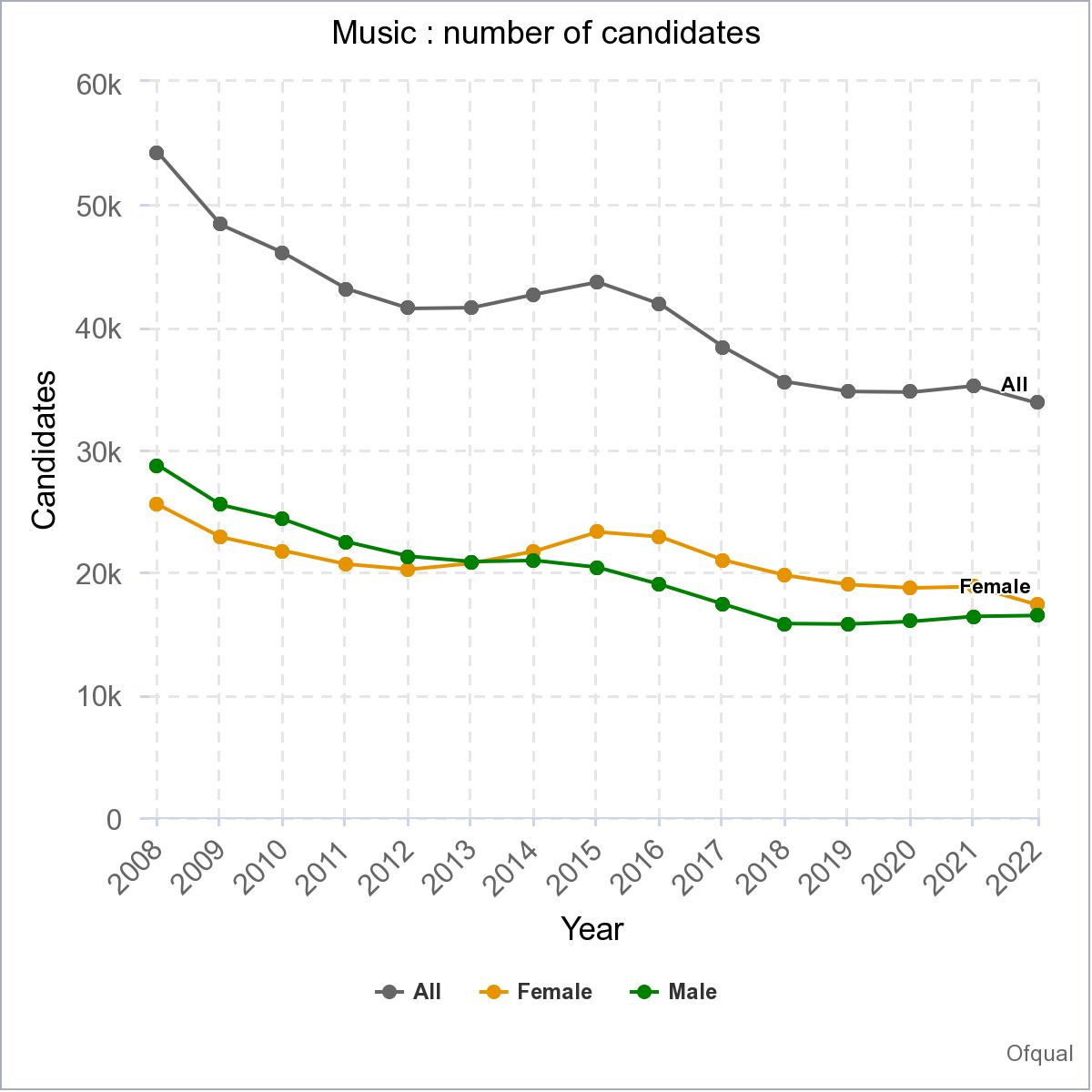
Statistics published on GCSE and VTQ results day reveal that the number of students sitting GCSE Music in England is now at its lowest.
Other than a slight increase in 2015, entry figures have consistently fallen since 2008, when the number hit 54,230.
The figure now stands at 33,795, representing a 37.7 per cent decrease in candidates.

Subject associations and music organisations have long been raising concerns over dwindling entry numbers, with the introduction of the English Baccalaureate in 2010 often cited as a major contributing factor.
Creative subjects are not included in the EBacc, which is a performance measure initially introduced to encourage uptake of ‘academic’ subjects.
Music could 'largely disappear'
Referring to arts subjects ahead of GCSE results day, Geoff Barton, general secretary of Association of School and College Leaders (ASCL), said: 'There is a danger that some of these subjects will largely disappear from the state education system and become the preserve only of families who are wealthy enough to afford private schools and clubs. The government must make state education a priority and fund it properly.'
Earlier this week, a Tes article quoted professor Alan Smithers, director of CREER at the University of Buckingham, predicting that the EBacc is 'done for' and will be ‘quietly phased out’.
These comments were made in response to provisional GCSE entry figures showing ‘no great revival of interest’ for modern languages, meaning that the performance target isn’t being met.
Commenting on GCSE results day (Thursday), Paul Whiteman, general secretary of school leaders’ union NAHT, said that the EBacc is creating ‘unnecessary barriers to success’.
He added: ‘Young people deserve a system which helps them to flourish and achieve in a wide range of academic and vocational subjects. The current GCSE system is not succeeding in doing that.’
ISM chief executive Deborah Annetts has commented on the 3.8 per cent decrease in entries since 2021: 'This significant fall in music entries since 2021 is of great cause for concern, particularly when entries have now fallen by a staggering 27 per cent since the EBacc was introduced.
'Accountability measures such as the EBacc and Progress 8 must be urgently reformed or scrapped to prevent further damage to our arts subjects. Our analysis shows the size of the challenge facing the refreshed National Plan for Music Education, as it aims to ensure all students have access to high quality music education in school.'
It is currently unclear whether schools and students are moving away from GCSE Music towards vocational and technical qualifications (VTQs) in music. National BTEC data is not published until November, and MT is working with awarding bodies to obtain a clearer picture of the landscape at all levels.
Celebrating strong results
Despite worrying trends in entries, students who did take GCSE Music are today celebrating a strong set of results.
The number of students receiving 7 or above is lower than last year’s peak, but remains significantly higher than in 2019 when exams were last sat.
Forty-four per cent of GCSE Music students in England, Wales, and Northern Ireland achieved top grades, while 83.6 per cent have secured a 4 (C) or above.
This year’s cohort has faced significant disruption in the run-up to their first major exams, and the grade boundaries reflect this - like last week’s A Level results, GCSE Music results are lower than in 2021, but remain higher than in 2019.
Over the last few years, the number of students across the UK taking GCSE Music has remained stable or increased, rising from 38,511 in 2019 to 39,194 in 2021. In 2022, this number dropped to 37,705.
Of this figure, 44.5 per cent achieved grade 7-9 (A-A*) compared to 50.6 per cent in 2021, 46.6 per cent in 2020, and 32.7 per cent in 2019.
The number of students receiving a 4 or above has followed a similar but less pronounced pattern - 83.6 per cent this year, 88.4 per cent in 2021, 89.7 per cent in 2020, and 76.7 per cent in 2019.








